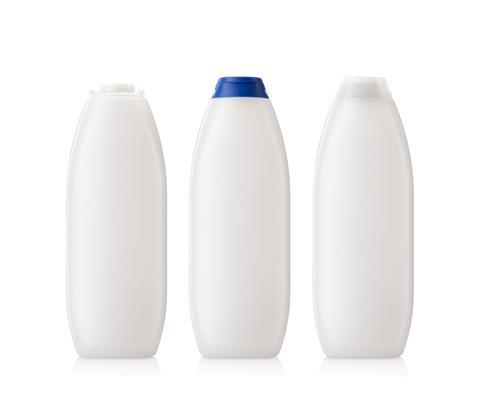
In our latest Finalist Interview ahead of the Sustainability Awards, we spoke to ALPLA’s innovation manager Karina Pölzl about the company’s ‘carbon-optimised’ Canupak packaging, nominated in the pre-commercialised Climate category.
You’re a finalist in the Sustainability Awards 2023. Congratulations! To start off, could you summarise your entry, in less than 50 words?
The Canupak packaging demonstrates the possibilities of optimising the carbon footprint of a packaging system. In a cradle-to-gate plus end-of-life approach, all aspects that can be influenced by the packaging converter were evaluated and optimised to the limit.
Why do you think the judges were impressed with your entry? Tell us about what is innovative about your project and/or about its impact on packaging sustainability.
I think the jury was impressed because we really pushed the envelope in optimising the carbon footprint of the entire packaging system. We have strived to optimise the packaging in all aspects that are within our sphere of influence - be it the lightweight design, the selection and sourcing of the material used, full compliance with design and recycling regulations, the use of renewable energy for production and the choice of transport method.
When and how do you intend to launch/commercialise this innovation?
The Canupak packaging in its current form can be integrated into the customer’s portfolio at any time. In addition, we want to inspire the market and our customers for carbon optimised packaging and be part of this journey.
You’re shortlisted for the Climate category. What do you see as the key demands and challenges in relation to reducing the carbon footprint of packaging and packaged goods?
The overriding requirement of the Green Deal is clear: carbon neutrality by 2050. Everyone must do their part to achieve this goal. However, it is still unclear how the industry can move from reducing its carbon emissions to true carbon neutrality. In my opinion, the lack of clear guidelines for achieving carbon neutrality, the lack of a legal and regulatory framework, and the lack of collaboration on data management along the value chain are the biggest challenges.
What do you think are the main opportunities in this area or what future innovations do you predict in this area?
The main opportunities in this area lie in collaboration along the value chain to make all influencing factors traceable and determine the carbon footprint of the final product based on real data and less on assumptions. To make this possible, I firmly believe that innovations in reliable and real-time data collection and data processing will be necessary. In my opinion, the next stop will be carbon neutral packaging. However, this requires a clear legal framework, more transparency about the effectiveness of carbon offset projects and better data management along the value chain.
The winners of the Sustainability Awards 2023 will be announced at the Sustainable Packaging Summit, which takes place in Amsterdam on 14-15 November. The Summit mobilises leaders of the FMCG value chain, policymakers, NGOs, recyclers and investors to collaborate, remove barriers and identify opportunities on the road to sustainable transformation.
To learn more or register, visit https://www.packagingsummit.earth/amsterdam2023/.













No comments yet